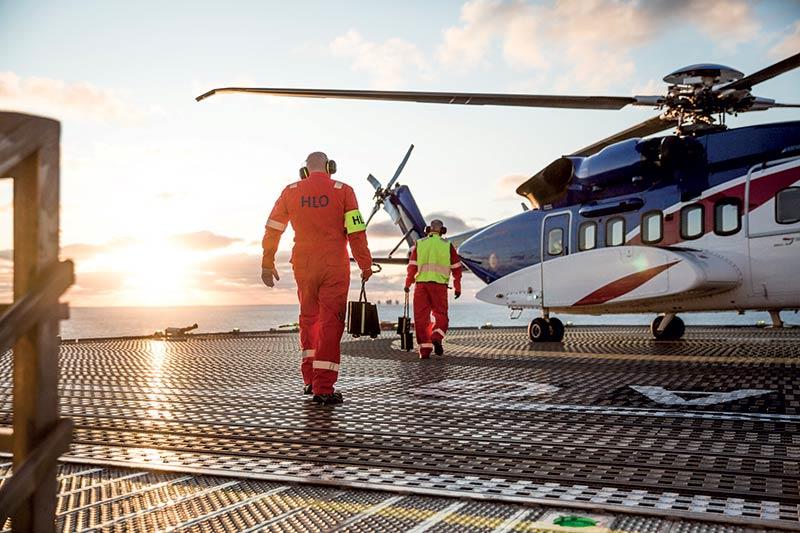L1 Energy’s ambition is to build a safe, sustainably growing energy group which is recognised as a partner of choice in its industry, and helps enable the energy transition to a lower-carbon economy.
The demand for energy is rising and will continue to do so as populations and economies grow, but the proportion that comes from fossil fuels will fall. Nevertheless, gas will continue to play an important part in enabling the energy transition for many decades.2020 was undoubtedly a difficult year for everybody and I’m proud of the way that Wintershall Dea responded to the challenge.
The only realistic route to decarbonisation is for oil and gas companies to take greater responsibility for the emissions they and their customers produce, and start doing things that take the carbon out of hydrocarbons.
Enabling the energy transition
In May 2019, L1 Energy and BASF completed the merger of their oil and gas businesses to create Wintershall Dea. All necessary regulatory approvals were received from nine countries, including Germany, Norway, the UK, and Russia.
This merger, the largest in the oil and gas sector for a decade, created a new gas and oil company – Wintershall Dea – which is Europe’s leading independent natural gas and oil company.
L1 Energy now holds 33% of Wintershall Dea. With 70% gas in its portfolio – and a low equity greenhouse gas intensity of around 7.4 kg CO2e/boe compared to IOGP average (18.5kg CO2e/boe)- Wintershall Dea is well positioned for the future energy transition.
In 2020, Wintershall Dea committed to target net zero greenhouse gas emissions from its upstream portfolio (Scope 1 & 2) by 2030, for its operated and non-operated projects. It will bring methane emissions intensity below 0.1% by 2025, and maintain no routine flaring of associated gas in its operations, according to the company’s commitment to the World Bank’s “Zero Routine Flaring by 2030” initiative. Beyond 2030, it intends to start meaningfully reducing its Scope 3 emissions.
Wintershall Dea Strategy
Wintershall Dea’s strategy is to strengthen its position as a European gas and oil company by delivering safe and profitable growth, a sustainable return to shareholders, and play an active role in the energy transition.
Competitive returns in a volatile low oil price environment
The combination of the Wintershall and DEA portfolios created an enhanced platform to capture new synergies. In 2020, Wintershall Dea has safely reduced its underlying production costs to €3.5 per boe, and through operational excellence and continuous improvement, it expects to maintain its peer-leading cost structure.

In 2020, Wintershall Dea delivered €180m of synergies and is confident it will exceed its cash synergies target of €200m per year in 2022.
Operational and financial performance
Wintershall Dea’s FY 2020 production was in line with guidance at 623 mboe/d, underpinned by solid operating performance and record production level in Q4 2020.
EBITDAX was impacted by the weaker commodity price environment, with Brent down 35% to $43 per bbl, and European gas down 38%, respectively year-on- year, with gas prices averaging $3.1mcf. For the full calendar year 2020, EBITDAX amounted to €1,643m (2019: €2,828m). However, despite the most challenging of years, Wintershall Dea delivered a positive free cash flow of €159m.
As at 31 December 2020, Wintershall Dea held 2P reserves of 3,554 million barrels of oil equivalent, which corresponds to c. 93% of the reserves reported as at 31 December 2019.
Committed to reducing emissions
During 2020, Wintershall Dea committed to reduce Scope 1 and 2 GHG emissions from its combined operated and non- operated upstream activities on equity basis to net zero by 2030, through portfolio optimisation, emissions management, and energy efficiency initiatives. For example, it has started to supply Mittelplate with 100% renewable power from the shore.
Emissions that cannot be avoided at a reasonable cost through portfolio and emissions management will be offset through investments in nature-based solutions, such as afforestation or conservation projects. In the longer term, it plans to reduce its Scope 3 GHG emissions and intends to invest around €400m over the next ten years in low-carbon initiatives and technologies focusing on carbon capture and storage, and hydrogen.
2020 operational highlights
Wintershall Dea has a significant number of development projects that came on-stream in 2020 and are due in 2021.